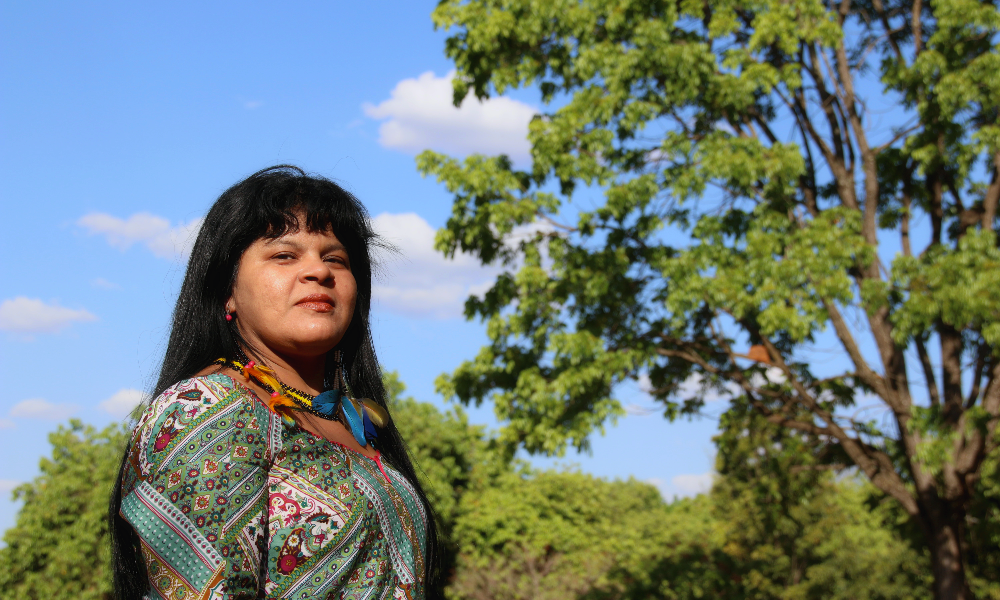According to The New York Times, the past few days have been some of the hottest recorded in history. On a seemingly unrelated note, on May 30th, 2023, the lower Congress of Brazil approved a proposed bill restricting recognition of contested Indigenous tribal reservations, igniting protests from tribal rights activists and initiating the discussion of the potential effects of the legislation and its impact on Indigenous rights. While, at first glance, these two topics may seem like different issues, they are inherently related.
Many countries have brutal histories of oppressing Native inhabitants, including but not limited to the United States, Canada, Australia, and Brazil. Native tribes have been pushed out of their ancestral lands, confined to a tiny fraction of the original land they had resided on, faced discriminatory laws, which restrict their access to resources, and forced to assimilate. To this day, Indigenous people face discrimination and inequality. Amnesty International, a global human rights organization, stated that “discrimination is the reason why Indigenous peoples make up 15% of the world’s extreme poor. Globally, they also suffer higher rates of landlessness, malnutrition, and internal displacement than other groups.”
One way Indigenous communities continue to face discrimination is through governmental policies about their ancestral lands, with an example being the previously mentioned Brazilian law. Bill 490, otherwise known as the Marcos Temporal Bill, premises that recognition of Indigenous reservations not previously demarcated will be limited, allowing for the development of these areas. The bill has several repercussions. For one, it marks a significant governmental disregard for Indigenous rights. This bill would allow the destruction of land that Indigenous communities have based their livelihoods on for generations in the name of profits.
According to The New York Times, “Sonia Guajarara [leader of the Indigenous Peoples Ministry] called the new bill a genocide against Indigenous people as well as an attack on the environment.” This quote introduces another potential effect of the bill: environmental destruction. Influenced by Brazil’s powerful agricultural lobby, the bill could have severe consequences on nature as more and more of the once-mighty Amazon rainforest is encroached upon and brutalized by commercial industries such as logging, mining, and farming. A recent study cited in an article by The New York Times found that “the Amazon is losing its ability to recover from disturbances like droughts and land-use changes,” making it susceptible to permanent damage, which would have an enormous impact on global climate change. Forests like the Amazon are essential to mitigating the effects of climate change, and if cut, the losses to biodiversity and the damage dealt to the atmosphere will be enormous.
These catastrophic outcomes signify that the issue of Native land rights has a cascading range of effects and needs to be addressed. Despite this, the Indigenous land rights movement faces several barriers. For one, Indigenous voices often lack representation, and during the rare occasion they are heard, they are swiftly silenced. Many advocates for Native land rights have been threatened, harassed, or intimidated for speaking out about issues that concern their communities. However, Indigenous representatives must be the center of the climate change conversation. While “Indigenous groups account for about 5% of the world’s population, their lands safeguard about 80% of Earth’s remaining plant and animal species,” according to the World Bank. As a result, governments need to recognize Indigenous land claims and allow them authority over the lands that Native populations have lived on for generations. Furthermore, an article from Reuters stated that “Indigenous [communities] also need more direct access to financial backing to conserve land.” If governments instituted policies that allowed Indigenous peoples better access to financial support, it could also impact climate change solutions positively.
One country that has been seeking to give Indigenous communities more autonomy in terms of land while also solving climate issues is Canada. An article by the New York Times explained how “in part to meet its climate goals, in part to further reconciliation with Canada’s Indigenous communities, the Canadian government has been turning to them more and more to help manage boreal forests by ceding more of the forest land to Indigenous groups.” These governmental policies include financial support, with the federal government set[ting] aside $340 million to support areas protected by Indigenous groups and networks of Indigenous experts.”
While Canada still has some ways to go, this solution provides a guideline for countries to implement climate change solutions and give Native communities more control over their land. Climate change and Indigenous rights are intrinsically related and, therefore, must be addressed together to have any chance of solving the problems that will continue to plague countries internationally.
Works Cited
Amnesty International. “Indigenous Peoples.” Amnesty International, 2019, www.amnesty.org/en/what-we-do/indigenous-peoples/.
Boadle, Anthony, et al. “Protests Flare as Brazil Approves Bill Limiting Recognition of Tribal Lands.” Reuters, 31 May 2023, www.reuters.com/world/americas/indigenous-groups-protest-brazil-bill-limiting-recognition-tribal-lands-2023-05-30/. Accessed 11 July 2023.
Fountain, Henry. “Amazon Is Less Able to Recover from Droughts and Logging, Study Finds.” The New York Times, 7 Mar. 2022, www.nytimes.com/2022/03/07/climate/amazon-rainforest-climate-change-deforestation.html.
Kahn, Carrie. “Brazil’s Indigenous People Protest as Lawmakers Vote to Limit Their Land Rights.” NPR, 31 May 2023, www.npr.org/2023/05/31/1179168180/brazil-indigenous-land-law-protest.
Lampert, Allison, et al. “Indigenous People Seek Stronger Land Rights at COP15 Nature Talks.” Reuters, 9 Dec. 2022, www.reuters.com/business/environment/indigenous-people-seek-stronger-land-rights-cop15-nature-talks-2022-12-08/. Accessed 11 July 2023.
Onishi, Norimitsu, and Nasuna Stuart-Ulin. “To Fight Climate Change, Canada Turns to Indigenous People to Save Its Forests.” The New York Times, 16 Nov. 2022, www.nytimes.com/2022/11/16/climate/canada-climate-change-indigenous-people.html?searchResultPosition=6. Accessed 11 July 2023.
Plumer, Brad, and Elena Shao. “Heat Records Are Broken around the Globe as Earth Warms, Fast.” The New York Times, 6 July 2023, www.nytimes.com/2023/07/06/climate/climate-change-record-heat.html.
